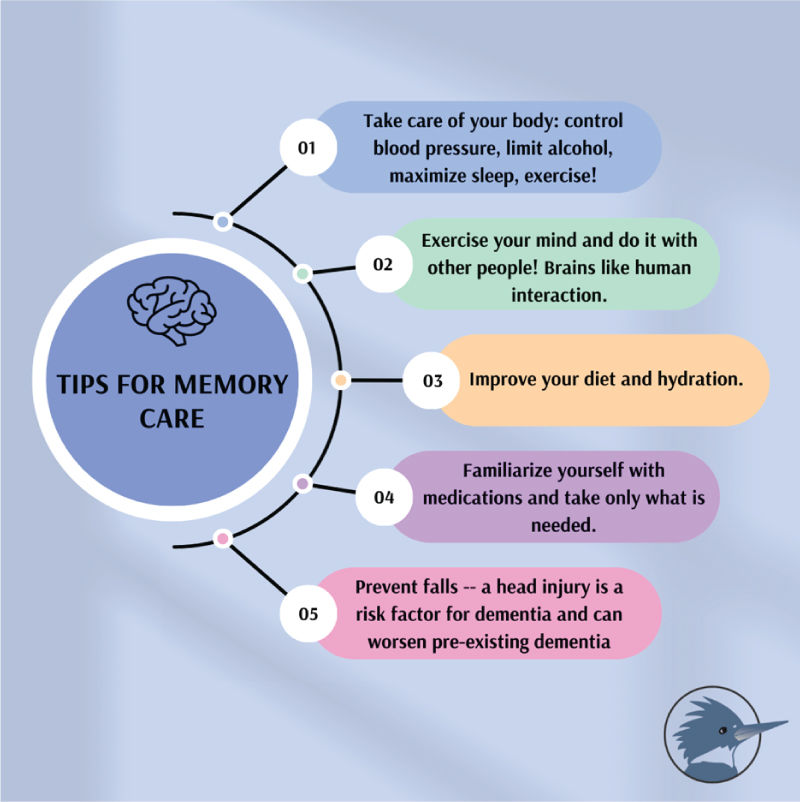- Make an appointment with your health care provider.
- Control blood pressure, blood cholesterol and blood sugars
- Limit medications and supplements to those that are necessary.
- Participate in aerobic exercise for 90 minutes per week.
- Aerobic exercise can reduce the risk of Alzheimer’s by 60%.
- Limit alcohol consumption.
- Do not use tobacco products.
- Read, engage, volunteer (book club, food bank, movie club)
- Try a new activity, experiment with new music, taste new foods.
- Complex and interactive games (Scrabble®, Cribbage) are best.
- Repetitive and solitary games (Sudoku, Solitaire) are of questionable value.
- Consider counseling or therapy for yourself or as a group.
- Limit fat, red meat, and alcohol. Aim for a healthy weight.
- Drink water. Drink more if you’re dizzy or have dark urine.
- Increase fruits and vegetables in your diet.
- Consider vitamins and supplements for memory support.
- Vitamin B12
- Vitamins C, E, K2/D3 (questionable benefit)
- Magnesium threonate, folic acid, zinc, fish oil (questionable benefit)
- Decide on an endpoint on when to stop driving a car, not if.
- Plan to discuss retirement from driving before it becomes an issue.
- Express concern while providing love and support.
- Provide a consistent message regarding safety.
- Consider physician involvement in decision making.
- Get tested if:
- Unable to locate familiar places
- Driving too fast or too slowly
- Not observing traffic signs or lights
- Hitting curbs or not staying in lane
- Falls are the number one cause of injury in people over the age of 65.
- Head injury is a risk factor for dementia and can worsen existing dementia.
- Talk with your healthcare provider about medication side effects
- Assess environment for fall risks
- Encourage close-toed, close-heeled shoes
- Remove or secure area rugs
- Ensure handrails and anti-slip steps
- Consider shower chair
- Remove clutter
- Enhance lighting
- Discuss current medications with a physician.
- With assistance, stop medications and supplements that aren’t needed.
- Become familiar with what each medication does.
- Become familiar with what each medication looks like.
- Set a routine for taking medications.
- Use a pill box if taking ≥ 1 medication.
- Have assistance with filling the pill box.
- Monitor how the pill box is being used.
- Set message reminders and alerts.
- Assist with medication management.
- Case management and/or Cognitive Care Planning
- Long-term planning (Five Wishes: https://www.fivewishes.org/ )
- Financial and estate planning
- Establish Power of Attorney

